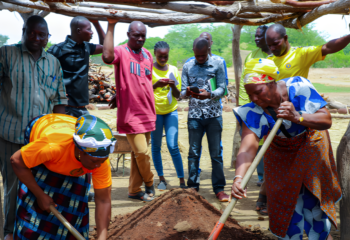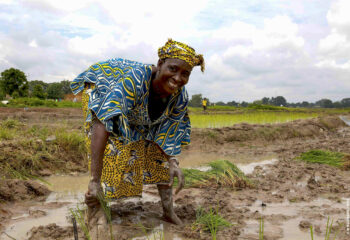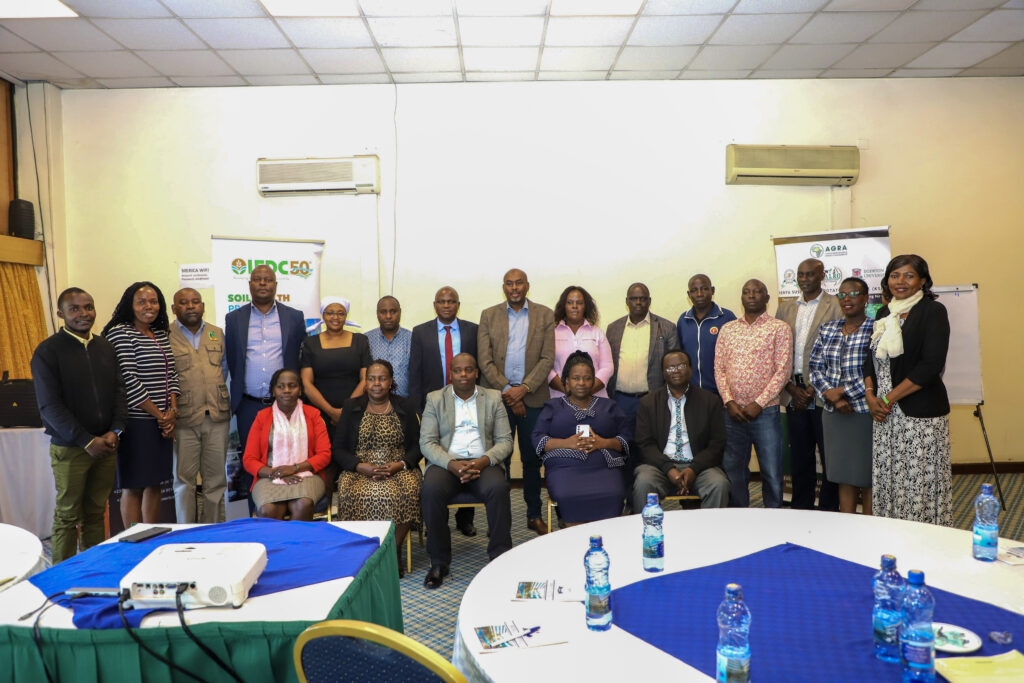
On October 22, 17 County Executive Committee Members (CECMs) from across Kenya, along with representatives from national and county governments and farmer organizations, convened in Nakuru to advance the implementation of Kenya’s Crops (Irish Potato) Regulations, 2019.
These efforts are intended to make Kenya’s potato industry more competitive and ensure fair market access, especially for smallholder farmers.
Organized by the International Fertilizer Development Center (IFDC) in partnership with the Agriculture and Food Authority (AFA), the National Potato Council of Kenya (NPCK), and Solidaridad, the event brought together key players in the potato industry to strengthen regulatory efforts and support the potato value chain. Such strengthening is needed since, despite the potato’s status as a vital food crop that supports the livelihoods of millions of farmers, Kenya’s potato value chain faces several challenges.
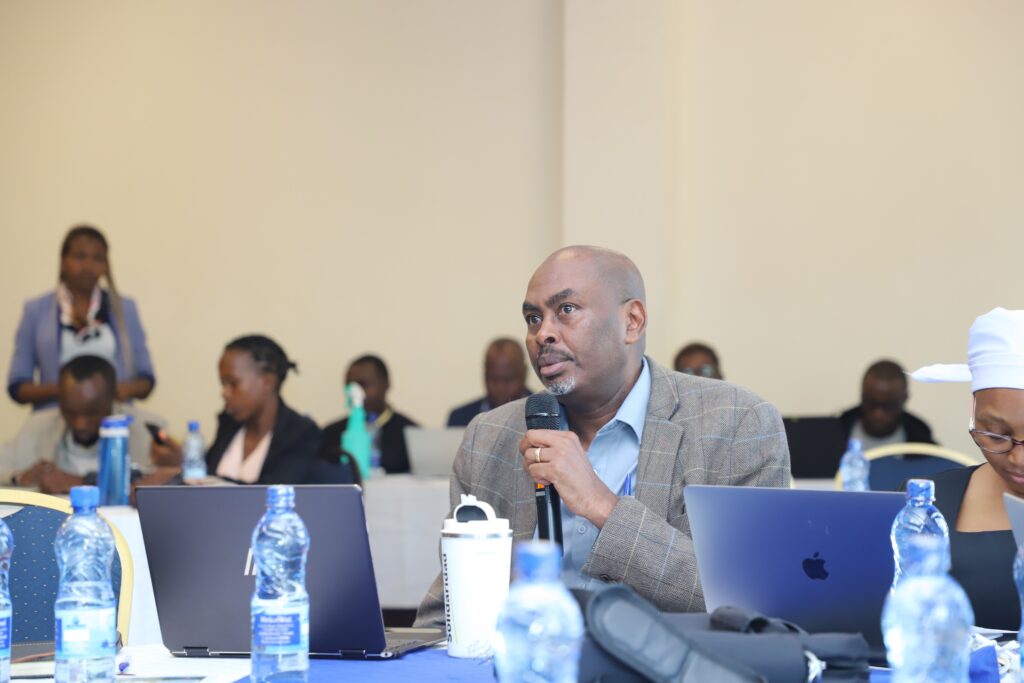
IFDC Potato Capacity Building (PCB) Project Agronomist Josline Nyaga presented key findings at the event, noting issues currently crippling the sector, including unregulated trading practices, gaps in farmer registration, poor quality control in production and transportation, and inconsistent market standards. These challenges have hindered growth and limited the industry’s impact on food security and economic development.
The meeting sought to address these long-standing issues and develop strategic plans for enforcing the 2019 regulations. For example, through the PCB project, IFDC partnered with the NPCK to drive public participation and advocacy, which makes it possible for the law to come into force.
Additionally, the AFA reported that over 250 inspectors have been trained to enforce standardized potato packaging. However, challenges remain, including inconsistent enforcement, limited transport systems, and the need for designated market centers to improve traceability and quality. The Honorable Leonard Bor, Nakuru County’s CECM, emphasized the importance of aligning county strategies with national regulations to address these issues.
“The goal is to ensure that farmers across potato-producing regions benefit from a more structured, predictable, and fair market environment.”
Leonard Bor, Nakuru County Executive Committee Member
Dr. Kiplimo Araap Lagat, Chair of the CEC Caucus, pointed to ongoing challenges such as informal market practices, a shortage of inspectors, and complexities in pricing and market integration in the potato value chain. He also highlighted the need for stronger collaboration between county and national governments, advocating for self-regulation by cooperatives and associations to reduce enforcement demands on government agencies.
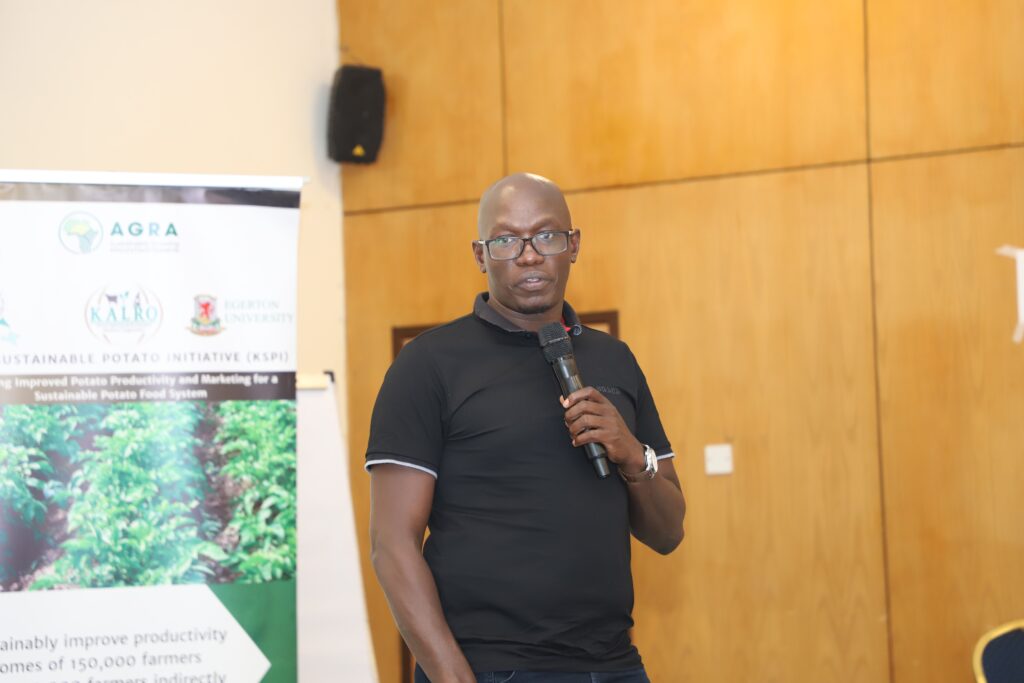
NPCK CEO Wachira Kaguongo shared the progress made since 2019, noting the regulations’ role in curbing illegal practices and promoting best farming practices. He recommended transitioning from pack-based pricing to weight-based pricing to discourage overpacking, reducing seed costs, and establishing standards for production, storage, and processing. These efforts are intended to make Kenya’s potato industry more competitive and ensure fair market access, especially for smallholder farmers.
The stakeholders resolved to implement a coordinated strategy for potato regulations across counties, including regular progress checks. There was also a call for farmers to form cooperatives to promote self-regulation. Stakeholders also recommended weight-based pricing, establishment of designated market centers, improvement in farmer registration, and provision of financial incentives to enhance the adoption of certified seeds and modern farming techniques.
In her closing remarks, IFDC Kenya Country Director Bridget Okumu reiterated IFDC’s commitment to sustainable agriculture. She emphasized the need for ongoing collaboration, stating, “This partnership is key to strengthening the potato value chain. We aim to ensure fair markets and sustainable practices that benefit farmers.”
The gathering marked a promising step toward an improved regulatory framework for Kenya’s potato sector, with stakeholders optimistic about achieving stronger market structures and better livelihoods for farmers across the country.
The PCB project (2018-2024), funded by the Embassy of Ireland in Kenya, was designed to improve the livelihoods of small-scale farmers and families through the adoption of new technologies, including certified potato seed and new varieties, good agricultural practices (GAPs), improved farm management skills, and market access.

